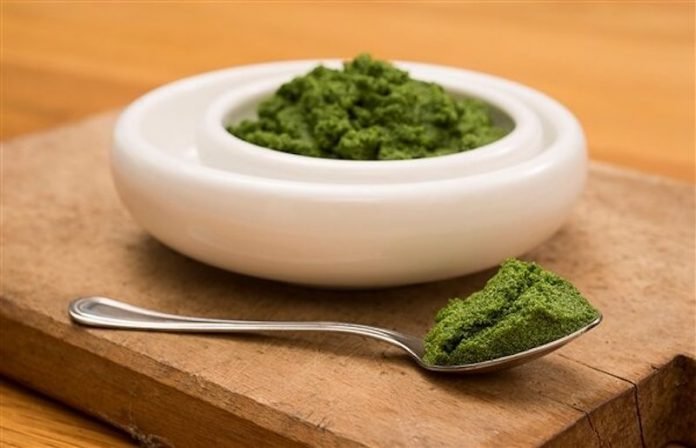
In a new study, researchers found Mankai, a new high-protein aquatic plant strain of duckweed, could help control blood sugar levels after people eat a high-carb diet.
The plan may work as a superfood and benefit people at a high risk of diabetes.
The research was conducted by a team from Ben-Gurion University of the Negev (BGU).
The Mankai duckweed aquatic plant is being grown in Israel and other countries in a closed environment and is highly environmentally sustainable.
It requires a fraction of the amount of water to produce each gram of protein compared to soy, kale or spinach.
Duckweed has been consumed for hundreds of years in Southeast Asia, where it is known as “vegetable meatball” due to its high-protein content—more than 45% of the dry matter.
It includes the complete protein profile of eggs, containing all nine essential and six conditional amino acids.
In addition, Mankai is very rich in polyphenols, mainly phenolic acids and flavonoids (including catechins), dietary fibers, minerals (including iron and zinc), vitamin A, vitamin B complex, and vitamin B12, which is rarely produced by plants.
Previous research had shown that Mankai duckweed has tremendous health potential as a superfood.
For example, one study showed that the absorption of the essential amino acids from Mankai was similar to the soft cheese and plant (peas) equivalent in protein content, reinforcing its role as a high-quality protein source.
Also, the study suggested that Mankai is a unique plant source of vitamin B12.
Another study had shown that a Mediterranean diet with Mankai, elevates iron and folic acid levels, despite low quantities of red meat.
In the current study, the team examined the influence of Mankai duckweed on blood sugar levels.
They compared Mankai shake consumption to a yogurt shake equivalent in carbs, protein, fat, and calories.
Following two weeks of monitoring with glucose sensors, people who drank the duckweed shake showed a much better outcome in health, including lower glucose peak levels; morning fasting glucose levels; later peak time; and faster glucose evacuation.
These participants also felt more full.
The team says Mankai is a good candidate to become a superfood. Mankai smoothies were introduced in the Harvard School of Public Health cafeteria recently.
One author of the study is Hila Zelicha, a registered dietician (R.D.).
The study is published in Diabetes Care.
Copyright © 2019 Knowridge Science Report. All rights reserved.



